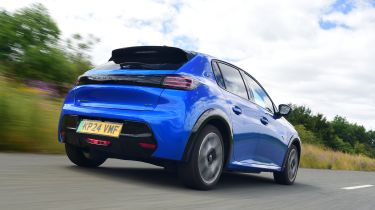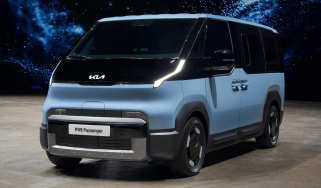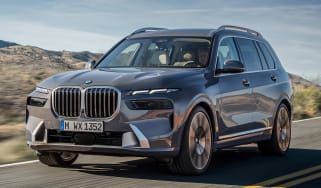Peugeot 208 - MPG, CO2 and running costs
The Peugeot 208 is relatively expensive to buy and insure, but is available with a choice of efficient engine options

As with most superminis, the Peugeot 208 is best suited to urban commutes and shorter journeys. With this in mind, the petrol models will probably suit you best. They’re cheaper and economical enough to make good sense as an overall package.
You might expect the least powerful 74bhp 1.2-litre PureTech option to be the best way to keep fuel costs down, but it’s actually the ‘thirstiest’ version – although 55.3mpg and 120g/km of CO2 emissions aren’t likely to upset anyone’s bank balance. We’d recommend the more powerful 99bhp 1.2 PureTech because it has slightly better fuel economy at 58.2mpg and lower emissions of 114g/km.
There’s a bit of a jump with the 99bhp mild-hybrid model, because it has a combined figure of 65.9mpg and emissions of just 101g/km, while the 154bhp version found in the GT still manages a highly creditable 60.1mpg, and 104g/km. The downside of both versions is that they cost more than the 99bhp PureTech, and it’ll take a while to earn back that additional expense in fuel savings.
Tax
The mild-hybrid models will be more popular with company car drivers due to lower emissions and reduced Benefit-in-Kind (BIK) company car tax costs. However, the hybrid Toyota Yaris has even lower emissions of 92g/km, potentially saving you more money.
Electric range, battery and charging
If you think an electric car fits into your lifestyle, it’s certainly worth considering the E-208, even in spite of the list price hike over petrol and mild-hybrid versions of the French marque’s supermini.
Used - available now
The 134bhp, 50kWh battery version offers an official WLTP range of up to 225 miles, which is a useful amount more than the 190 miles of the entry-level MINI Cooper E, and is ideal for many short commutes and even some longer drives if needed. The more powerful 154bhp, 51kWh version will boost the E-208's range up to 248 miles.
During our testing in warmer weather, the more potent E-208 managed an efficiency figure of 4.3 miles per kilowatt hour, giving it a real-world range based on the usable battery capacity of 219 miles. You will need to add the £400 optional heat pump if you plan on taking longer trips in colder winter months, otherwise, your range figure has the potential to plummet since a heat pump provides a more efficient way of heating the interior in winter weather.
The similar battery sizes mean that both versions of E-208 can be fully charged from a 7kW home wallbox in 7.5 hours, while a 10 to 80 per cent top-up from a 100kW DC rapid charger will take about 30 minutes.
Those range and charging speed numbers are competitive, but an MG4 can be had with greater battery capacity and more range, plus it can be charged at a faster peak rate of 150kW to compensate for its additional battery capacity.
Insurance groups
Petrol-powered versions of the Peugeot 208 are generally cheaper to insure than the equivalent electric model, but that is not to say they cost less than other supermini rivals, such as the Renault Clio.
The base 74bhp petrol sits in group 15 (out of 50), with the more powerful 99bhp and 128bhp versions in groups 21 and 28, respectively. In comparison, the Renault Clio starts in group 10 for the 90 TCe petrol, rising to group 15 for the E-Tech hybrid models.
The E-208 is more expensive to insure, with all versions landing in group 31.
Depreciation
The E-208 is the worst offender in the 208 range, only retaining 32-33 per cent of its value after three years and 36,000 miles of motoring. The entry-level 136bhp Active loses its value faster than the top-of-the-range 154bhp GT.
The petrol and mild-hybrid models do better, retaining between 47-48 per cent (the best being the 99bhp PureTech Allure, with the 99bhp PureTech Active losing the most value). That’s on a par with the VW Polo, but behind the Renault Clio, which retains 48 to 52 per cent, or the Toyota Yaris, which maintains between 47 to 55 per cent of its value over the same period. Few can match the Audi A1, which, in 30 TFSI S Line form, retains 58 per cent of its resale value.
To get an accurate valuation of a specific model, check out our valuation tool.












